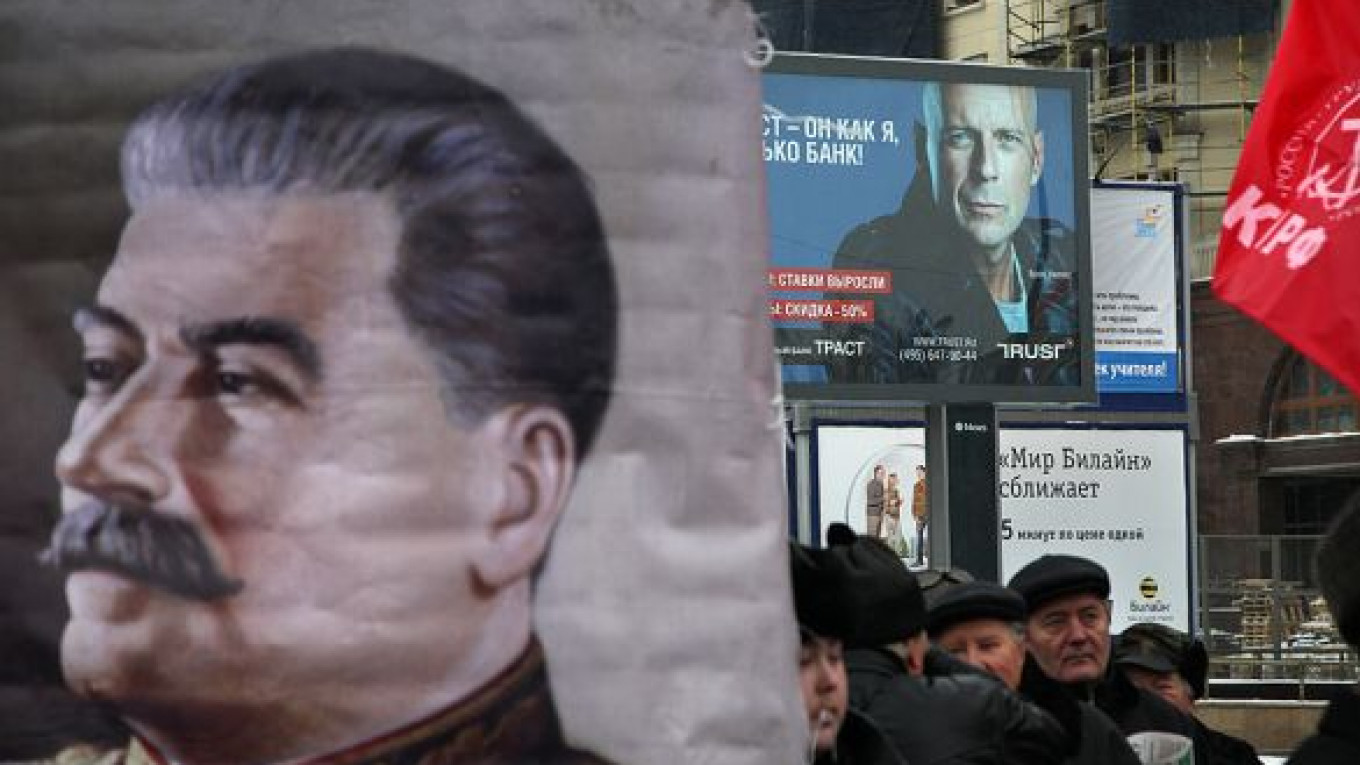State-controlled media must stop whitewashing Soviet dictator Josef Stalin's image, and the government should take a stand on his crimes, human rights activists and historians said Wednesday.
State-run television stations have recently turned Stalin's name into a favorable brand, thanks to a "very talentedly executed propaganda," Alexander Drozdov, director of the Boris Yeltsin Center, said at a news conference.
Nationwide, the television stations have aired many movies and programs casting Stalin in a positive light.
He was voted as Russia's third-greatest historical figure in a prime-time show in 2008, garnering more than 519,000 votes. Recent polls have shown that one-third to one-half of Russians have a decidedly or at least a mildly positive view of Stalin.
Prime Minister Vladimir Putin has avoided open public praise or criticism of Stalin. But his opponents have accused the government of burnishing Stalin's image as part of its efforts to justify its own retreat from democracy.
Stalin critics have been outraged by a high school textbook that describes the dictator as "an efficient manager" and by a restored Moscow subway station that included old Soviet national anthem lyrics praising the dictator in its interior decoration.
Vladimir Lukin, the country’s human rights ombudsman, decried any attempt to give Stalin credit for the economic growth of the 1930s.
"Thanks to heroic efforts and a total disregard for humanity, our country managed to evolve from a backward agrarian country into a backward industrial one during the Stalin era," Lukin said.
Arseny Roginsky, a co-founder of the Memorial rights group, said the least the Russian government can do now is "give a legal appraisal to crimes of the Soviet regime." Roginsky's group has offered a comprehensive package to help raise public awareness of Stalin's crimes, including suggestions for school curriculums.
Andrei Sorokin, director of the Russian State Archives of Social and Political History, warned that Russia would have no future if it fails to assess its difficult past.
"The Russian society has been living in a crisis of public consciousness for the past 25 years," he said. "Any forward movement or attempts to modernize Russia will fail if we don't work out a consensus on our attitudes toward the Soviet past."
A Message from The Moscow Times:
Dear readers,
We are facing unprecedented challenges. Russia's Prosecutor General's Office has designated The Moscow Times as an "undesirable" organization, criminalizing our work and putting our staff at risk of prosecution. This follows our earlier unjust labeling as a "foreign agent."
These actions are direct attempts to silence independent journalism in Russia. The authorities claim our work "discredits the decisions of the Russian leadership." We see things differently: we strive to provide accurate, unbiased reporting on Russia.
We, the journalists of The Moscow Times, refuse to be silenced. But to continue our work, we need your help.
Your support, no matter how small, makes a world of difference. If you can, please support us monthly starting from just $2. It's quick to set up, and every contribution makes a significant impact.
By supporting The Moscow Times, you're defending open, independent journalism in the face of repression. Thank you for standing with us.
Remind me later.






